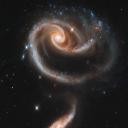Yahoo Answers is shutting down on May 4th, 2021 (Eastern Time) and beginning April 20th, 2021 (Eastern Time) the Yahoo Answers website will be in read-only mode. There will be no changes to other Yahoo properties or services, or your Yahoo account. You can find more information about the Yahoo Answers shutdown and how to download your data on this help page.
Trending News
CMOS - MOS - CCD and FX - DX?
Concerning DSLR cameras, The first three refer to the sensor...which is best and lowest in noise?
The next refer to the cameras themselves and I have no idea what they mean.
I am looking for the best camera with a lens that is really 18mm to 150 or better with low noise at high ISO.
4 Answers
- 10 years agoFavorite Answer
The best camera at high ISO is currently the Nikon D3s. By a considerable margin.
Then the Nikon D3 and D700, closely followed by the Nikon D3X, Canon 5D Mk ll and Canon 1Ds Mk lll. It's no coincidence that all of these cameras are full frame and cost (well) North of 2 grand.
The Nikon D7000 (DX) is the current darling in a more affordable price bracket - 'just' $1200.
Here's a long list of high ISO benchmarks - it also includes other brands: http://www.dxomark.com/index.php/en/Camera-Sensor/...
CMOS vs. CCD? It's mostly CMOS sensors these days, but who cares? The benchmarks clearly demonstrate that both technologies perform all over the map - read the reviews for individual cameras instead. (My D700 could have a sensor made out of tuna-fish for all I care - it performs beautifully.)
If you want to cover 18-150mm with a single lens, you'll only find consumer grade super-zooms. You might be more interested in f/2.8 zooms for low light photography... but you'll require 2 of them to cover the range and they're not cheap. Or a set of prime lenses for even larger maximum apertures.
Performance is just one parameter - add your wishes regarding budget and convenience for better recommendations.
---
added:
I didn't even give you a straight answer...
FX is Nikon lingo for a dSLR with a full fame sensor (24x36mm)
DX is Nikon lingo for bodies with/ lenses for a cropped sensor (16x24mm)
Btw, the D700 (FX) will give you clean images up to ISO 3200. That's mostly what the extra cash buys you vs. a D300s (DX). There's also the larger viewfinder, and the one stop advantage when you want shallow DOF.
- 6 years ago
This Site Might Help You.
RE:
CMOS - MOS - CCD and FX - DX?
Concerning DSLR cameras, The first three refer to the sensor...which is best and lowest in noise?
The next refer to the cameras themselves and I have no idea what they mean.
I am looking for the best camera with a lens that is really 18mm to 150 or better with low noise at high ISO.
Source(s): cmos mos ccd fx dx: https://shortly.im/wn1KN - keerokLv 710 years ago
Information overload? Sensor types, although they are different, perform equally when you consider both advantages and disadvantages. At the end of the day, they are the same.
FX and DX or full-frame and crop sensor won't matter if you just look at your pictures through your computer's monitor at its largest. Those who print to building sizes will benefit from a larger sensor, the full-frame.
Lenses, the more zoom they have, the poorer the optics. Such is a fact of life. Blame science on that. The best lenses which are mostly abhorred by beginners are those that do not zoom, prime lenses.
High ISO values are used primarily in low light conditions. Normally, you leave ISO at its lowest setting for vivid and saturated colors in your pictures. ISO beyond 800 is always bad. It will all go down to a compromise to get a picture even if grainy and noisy or not get a picture at all.




